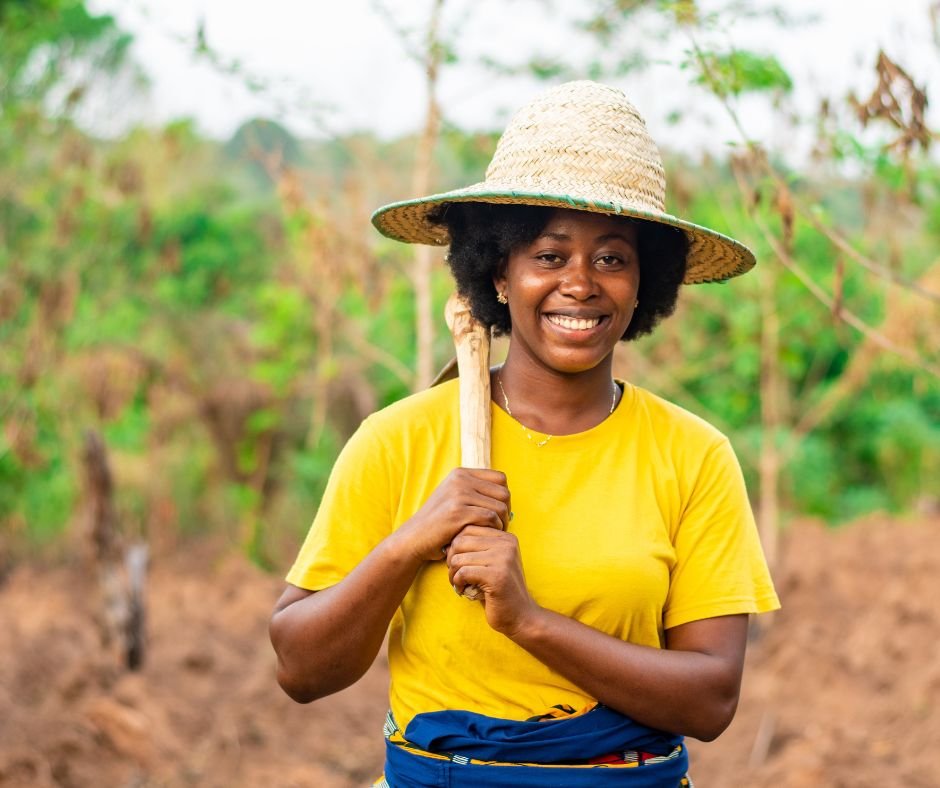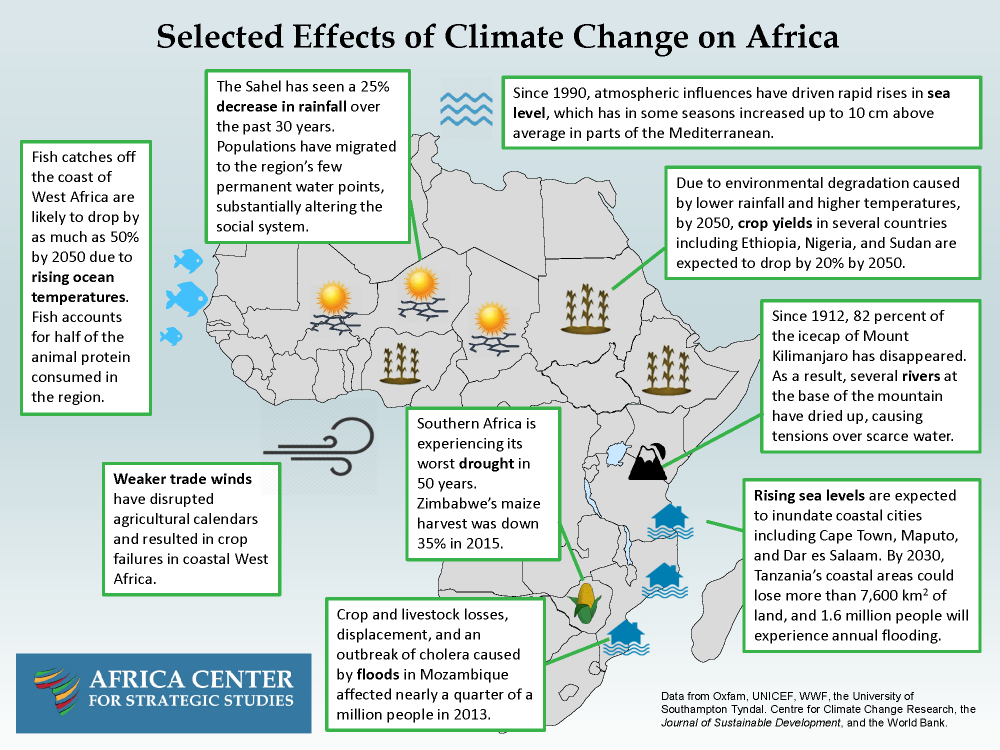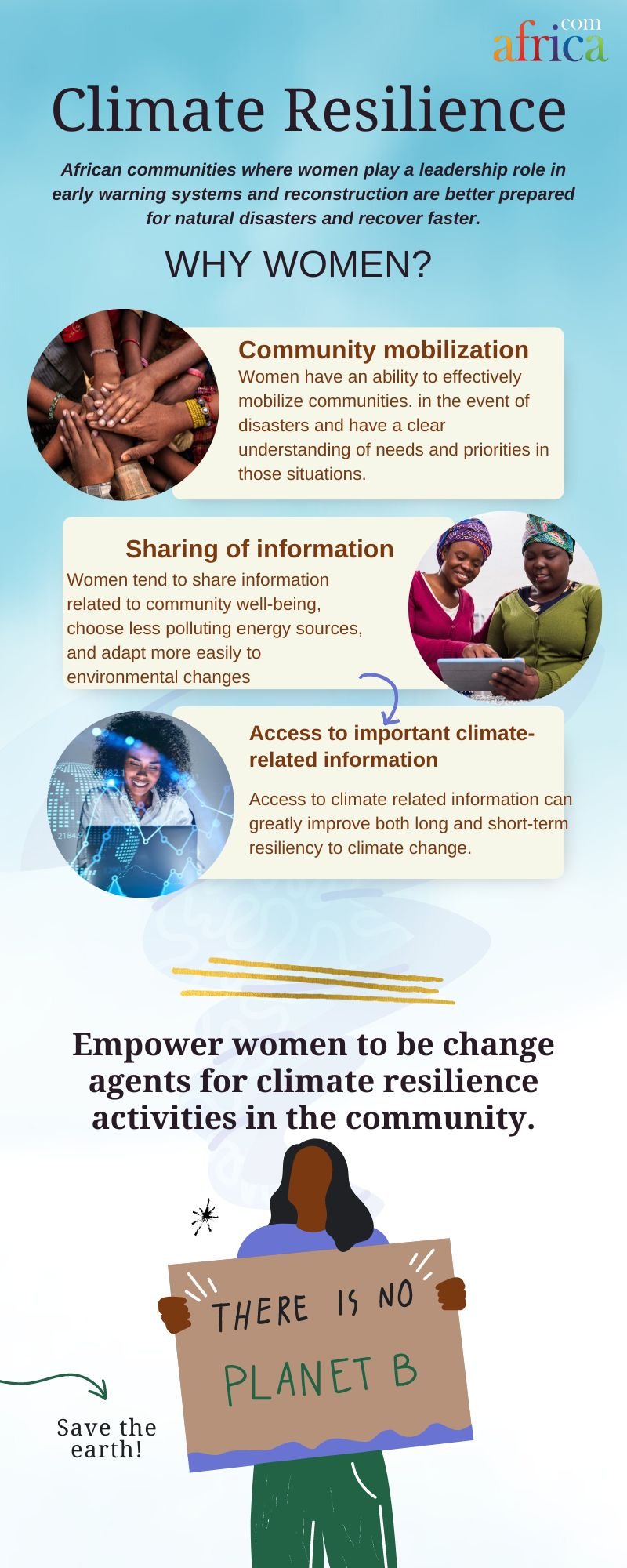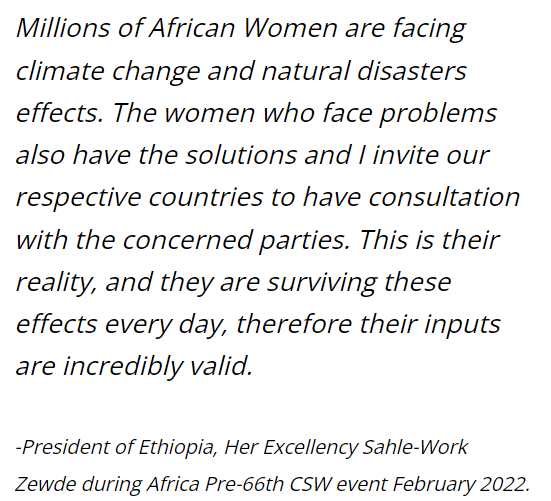Gender Inequality and the Connection to Climate Change

Written by Nelly Gachanja and originally published by africa.com, 12 October 2022
Did you know gender inequality and climate change are interconnected? Africa is more vulnerable to climate change than any other region on the planet. Coincidentally, the continent is also one of the world’s least gender-equal places.
Gender inequality, combined with the climate change crisis, endangers the lives, livelihoods, health, safety, and security of African women and girls across the continent. Climate change is causing massive livelihood losses and damages for African women, among others, the loss of biodiversity. The economic risks posed by climate change could widen the gender gap.
Gender norms and power dynamics influence how African women and men from various backgrounds experience or contribute to insecurity in a changing climate.

Why African women must be central to climate resilience
African women have unique knowledge and experience, especially at the local level; their participation in decision-making is critical to effective climate action.
Increased female representation in top leadership leads to more stringent climate change policies, resulting in lower emissions. Participation of women in natural resource management is associated with improved resource governance and conservation outcomes at the local level.

Increasing women’s access to productive resources can boost agricultural production and food security, while lowering carbon dioxide emissions. Additionally, boosting farm yields can alleviate the need to deforest more land, resulting in lower emissions.
Women’s leadership in the workplace is associated with increased transparency about climate impact. Higher percentages of African women on corporate boards are associated with greater disclosure of carbon emissions data.
The transition from extractivism practices and fossil-fuel economies presents an opportunity to create new jobs and re-skill female workers. For example, Africa has a vast potential in renewable energy, particularly geothermal, a viable energy resource estimated at over 15,000 megawatts in the East Rift System Countries, that the continent can leverage to improve East Africa’s energy-mix generation.
Former Iceland President Olafur Grimson launched the African Women Advancing Geothermal (AWAG) group during ARGeo to accelerate the process of ensuring women get represented in the industry. Olafur praised the initiative during his remarks at the conference, saying it will bring gender equality, and new and fresh ideas to the African geothermal industry.
Finally, gender equality in climate action requires sexual and reproductive health and rights. African countries can protect recent gains in environmental and biodiversity conservation, adaptation to change, and climate improvements in health, education, and gender equality by strengthening Africa’s health systems to meet the current demand for sexual and reproductive health services.
What role do African women play in climate change policy?

Gender mainstreaming should prioritize African women in climate change policy, as climate change consequences are disproportionate. A 2019 study found that increasing women’s representation in national parliaments leads to the adoption of more stringent climate change policies, resulting in lower emissions.
While African countries are among the least responsible for global emissions, African populations are significantly more vulnerable to the harmful effects of climate change due to their reliance on the natural environment. Furthermore, African women are more vulnerable than men; according to UNDP projections where approximately 90 million African women will be food insecure by 2050. Evidence suggests that the effects of climate change are gendered, with women bearing the brunt of the burden.
Despite the apparent need, gender is rarely a focal point of climate change policy. Gender mainstreaming entails actively accounting for gender in all policy or policy-related initiatives to address specific vulnerabilities across the gender spectrum and ensure that institutional systems do not exacerbate gender inequalities.
Gender should be considered in any climate policy, development plan, or implementation strategy, and budgetary provisions should back up these measures. This is especially true in Africa’s women-dominated sectors, such as small-scale food processing, subsistence farming, and petty food trade.
Agriculture is one policy area in Africa where gender mainstreaming is beneficial. Women comprise 40% or more of the agricultural workforce in 46 of 53 African countries, while women account for 60-80% of smallholder farmers in Sub-Saharan Africa.
Gender mainstreaming is taking shape in East Africa, where most countries have incorporated women to some degree in climate change policy. Uganda and Tanzania are leading the way in developing explicit gender mainstreaming strategies.
Women’s Role in Climate Resilience
Women are typically highly active in disaster preparation, response, and recovery, albeit haphazardly and informally.They are frequently involved in the construction of temporary shelters, the organization of soup kitchens, and healthcare administration. In addition, women are knowledgeable and experienced in dealing with crises as housewives and caregivers.
Governments, planners, and strategists must implement planning measures that recognize and formalize women’s participation in disaster management and risk management strategies. They must encourage data collection aimed at a specific age and gender disaggregation to determine what works and does not.
Women from all demographic backgrounds should be included in strategies to identify risks that male planners may not understand. Consulting with women also aids in the dismantling of stereotypes and discrimination.
Agriculture, Africa’s largest single industry in terms of value and jobs, employs far more women than men. It accounts for 14% of total GDP and 43.8% of total employment. It is hardly surprising, then, that women entrepreneurs are driving so many of Africa’s climate solutions.
We can address global challenges such as climate change, healthcare, and food security by leveraging women entrepreneurs’ talents, skills, and innovation. Supporting female entrepreneurs and innovators has the potential to significantly accelerate the achievement of the United Nations Sustainable Development Goals (SDGs).
Climate-focused women-led businesses are critical drivers of SDG achievement. When combined, two of the SDGs – gender equality and climate action – can impact nearly all other SDGs, such as ending hunger and ensuring good health and well-being. Gender and climate change have the potential to open up new opportunities in a variety of sectors.
African women are the real champions in their communities, as they must cope and adapt daily to the impacts of climate change.